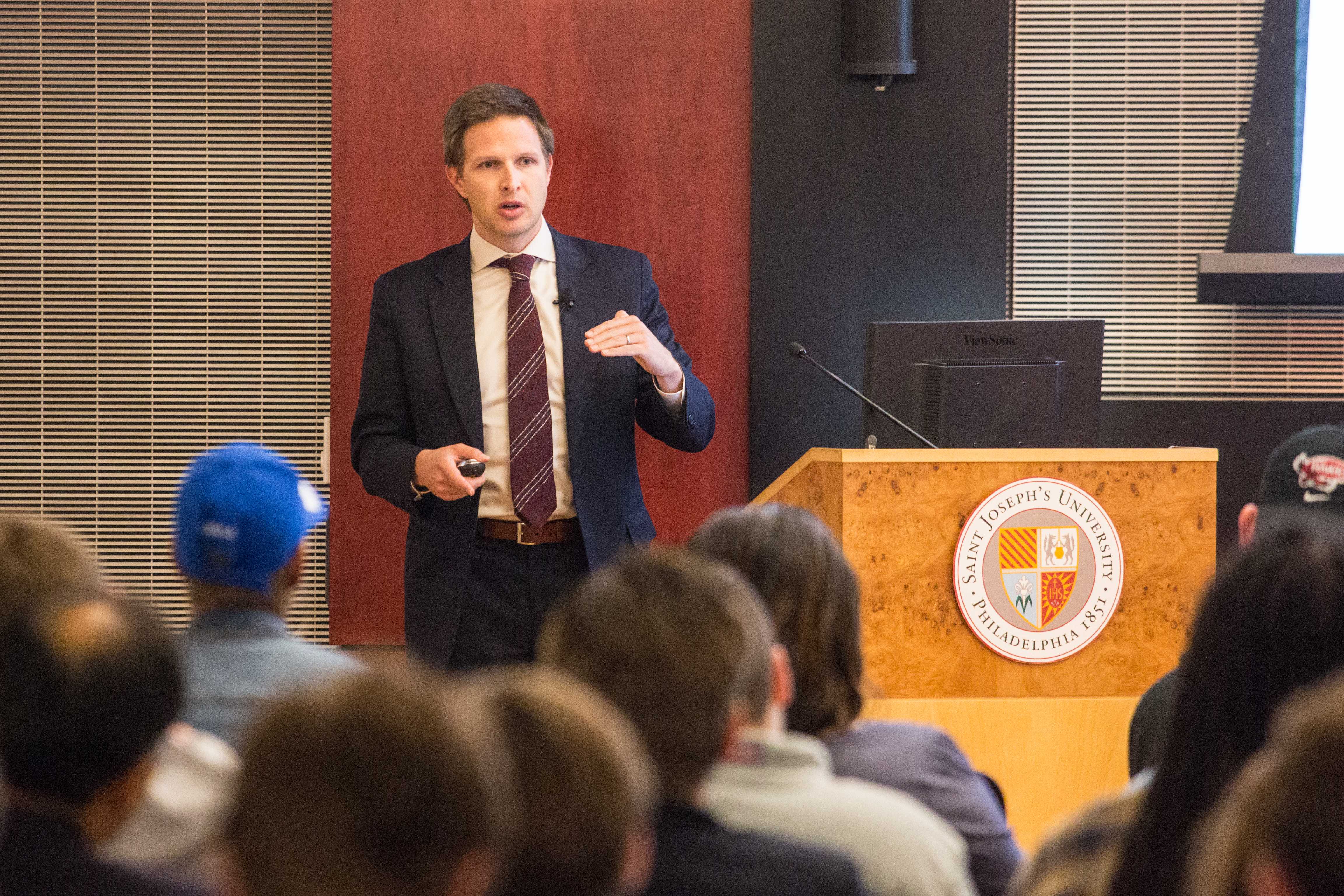Lecture discusses the misconceptions of the religion.
A lecture titled “Why Shouldn’t I Think There’s a Problem with Islam?” was given at St. Joe’s by Jonathan Brown Ph.D., chair of Islamic studies at Georgetown University, on Oct. 24. This lecture discussed misconceived perceptions of Islam including the idea that it is a violent religion.
Brown explained that in order to begin to understand the problems with the misconceptions surrending Islam, people must first begin to understand the problem with themselves first.
“When we talk about Muslims and Islam, we are actually talking about ourselves,” Brown said. “It’s like the Rorschach test. It reveals your insecurities and your fears and that’s precisely what we see in the West when we talk about Muslims and Islam and it has been that way for over a thousand years.”
Brown stated Islam has served as a vessel for the West’s own insecurities, therefore creating a “negative integration” in which they strengthen their own identity by weakening others.
“Islamophobia, the fear of Muslims, is the string that binds the [political] groups together,” Brown said. “The insecurities that we see is the inability to deal with internal difference.”
Umeyye Isra Yazicioglu, Ph.D., associate professor of Islamic studies, said Brown helped diagnose the issue at hand.
“There is an immense amount of negative coverage and that contributes to the misunderstanding,” Yazicioglu said. “He really pushed us to think about why is the coverage like this. There’s one incident that happens or disagreement that happens in some context and you have a whole article that’s about how can this [violence] change how can Muslims change. It shouldn’t be generalized to everybody.”
Brown shared that out of the 1.5 billion Muslims in the world, only .006-.007 percent are Muslim terrorists and only .0007 percent of American Muslims are terrorists.
“If you want to be safe, just follow a Muslim guy around in this country because he is less statistically likely to engage in an act of violence than just a random guy,” Brown said.
Brown also argued the war in Iraq is causing millions of deaths and America does not look at that as the problem.
“The destruction we have caused in other people’s lands we don’t even know about and then we ask ourselves what’s wrong with them,” Brown said. “That is why we should not talk about Islam as a problem. We should look at ourselves.”

Yazicioglu believes Brown is asking people to confront out own double standard which, in her opinion, is not easy to do.
“He really wants us to face it up front and it’s not easy,” Yazicioglu said. “Many people don’t want to think that innocent lives are being killed in our wars. But then we turn around and say why do so and so kill innocent people. I mean two wrongs don’t make a right but I think he wanted us to think about the way in which the questions we ask are framed. We frame them in a way that distracts attention away from our responsibility.”
It is difficult for Yazicioglu when people see her religion as one that is there to hurt others and force the religion on them. She does not watch the news, but when there is an attack by people who are Muslim, she feels like people will begin to stare at her because of her Hijab and think of her as one of them.
“I, as a Muslim, do not want my neighbor to generalize me based on one incident that was on the news which is put in that extremely negative context,” Yazicioglu said. “I don’t want my neighbor to think that Muslims are like that and I am a part of that.”
Yazicioglu wants people who do not understand Islam to know it is a generous religion and not violent like it is sometimes portrayed.
“Religions in general are ways in which they enrich the way we see the world with metaphors and symbols and reasoning as well,” Yazicioglu said. “Reasoning to see the world around us. It’s not a religion that will hurt you but it will enrich you, enrich your thinking and your feeling. I wish the best potential for each religion and that it could be more transparent for the people outside and that would be a really beautiful world.”














































